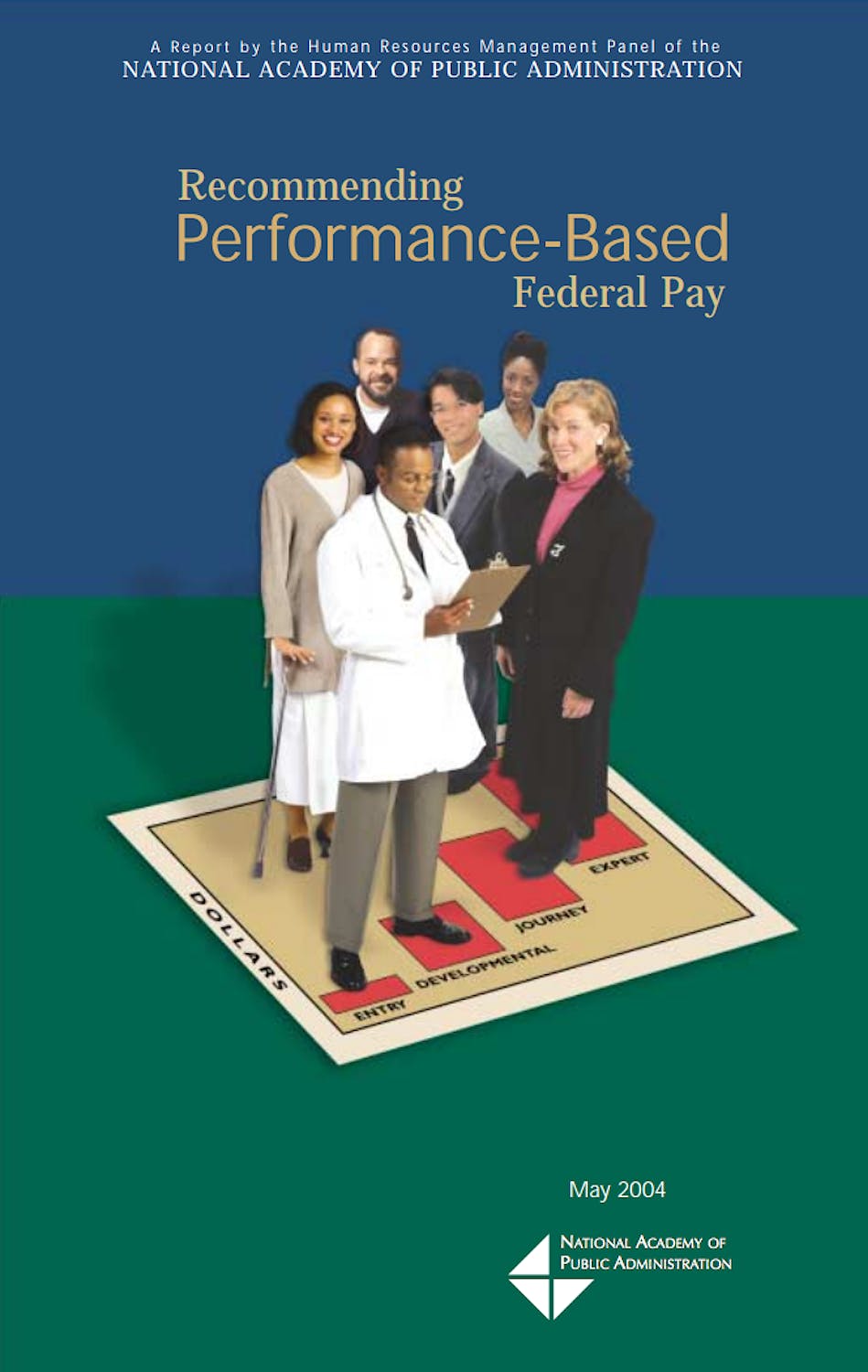
Recommending Performance-Based Federal Pay. A Report by The Human Resources Management Panel
The Academy's Human Resources Management Panel (HRM Panel) released a series of reports from 2003 to 2004 on the adoption and implementation of broadband pay systems in the public and private sectors. The first two reports in the series examined the use of broadband pay systems by private corporations and government agencies. In this third report the HRM Panel built on the findings of the first two reports.
Click the button below to view the View Study Report.
View ReportKey Findings
The federal government’s General Schedule (GS) salary system no longer meets federal agency needs and should be replaced. Notwithstanding considerable debate on this issue—most notably authorizing the Department of Defense and Department of Homeland Security to reform their personnel systems—will result in a major portion of federal professional and administrative workers being paid under broadbanding systems. Broadbanding, which has been tested in a wide range of environments, has distinct advantages over the GS system. The Academy Panel endorses the introduction of an integrated pay-for-performance system and recommends that a new government-wide system be created using broadbanding and market pay.Open salary bands provide flexibility for agencies to manage salaries to support their human capital plans. At the same time, authorizing individual departments and agencies to develop and plan their own salary systems opens the door to problems that can be avoided. It is reasonable to require agencies to complete the rollout within five years, though they should have some flexibility to develop a strategy and schedule that fit their specific mission and culture. The agencies would continue the GS system until the rollout is complete.
Recommendations
Using the merit system principles as a continuing foundation, the Panel submitted the following recommendations. The new federal salary system should be based on the concept of broadbanding, with salaries managed within bands and grounded in pay-for-performance principles. The Office of Personnel Management should be responsible for establishing the government-wide boundary framework, identifying the occupation groups, establishing the salary bands for each group, planning annual system adjustments, and monitoring agency salary practices. The transition from the GS system to the banded structure should be completed within five years. Agencies should be allowed to develop their own schedule based on their human capital plans, budgets and performance management systems. Employee salaries will not be reduced during the transition to the new pay system. Employees and managers are the primary stakeholders. They and others will be involved in the design and implementation strategy for the new salary, performance management and position classification systems. Performance management systems that identify the “outstanding”, “meets expectations”, and “unacceptable” employees will serve as the foundation for the pay-for-performance component of the pay system. The new pay system must be sufficiently flexible and responsive to changing market conditions to meet the needs of federal agencies for years to come.
